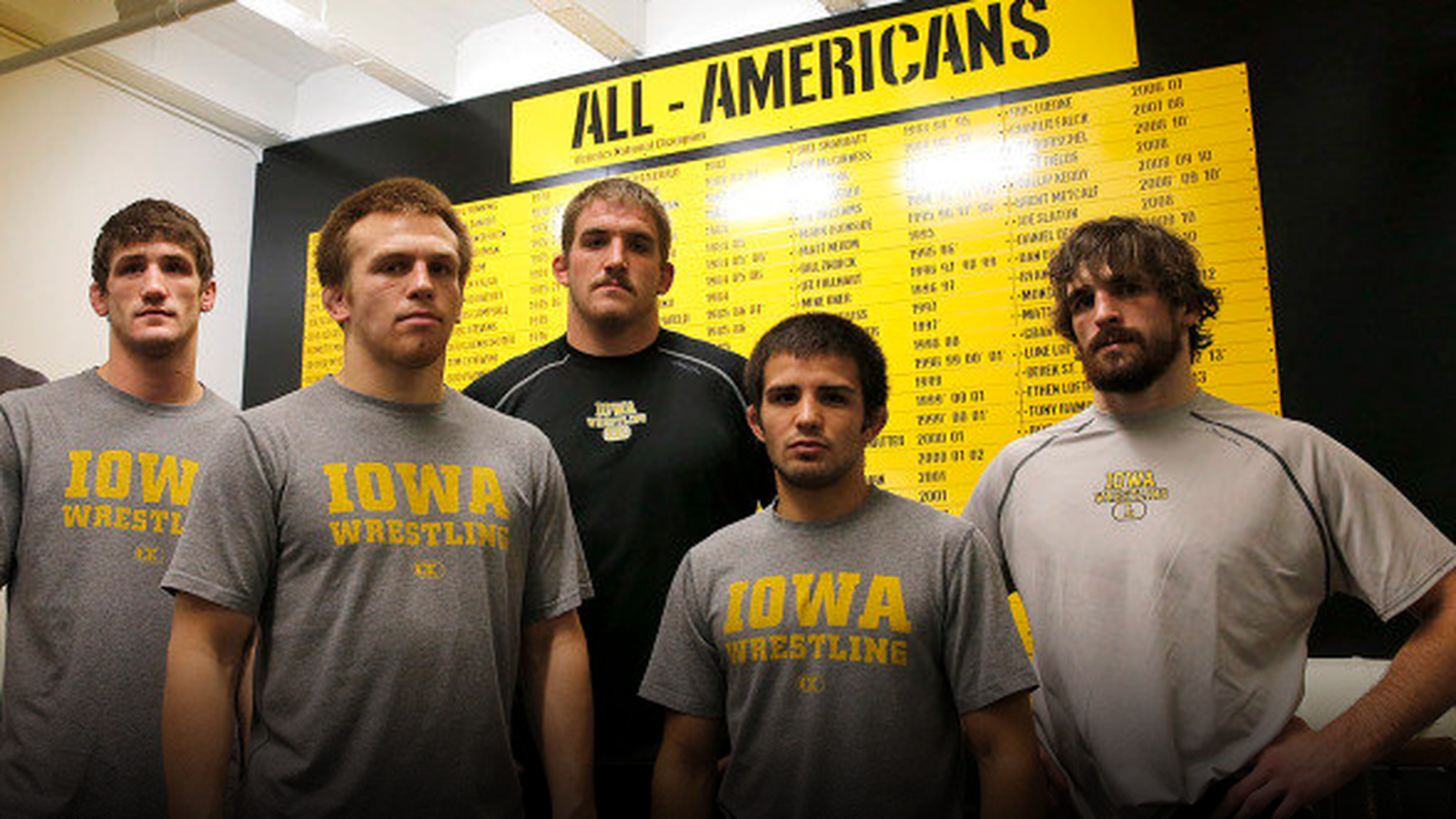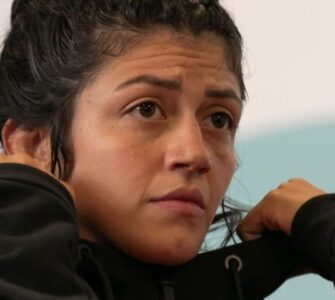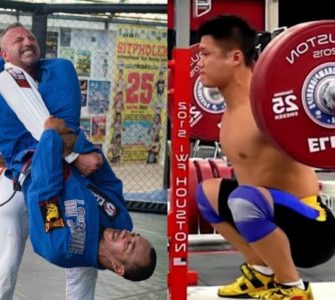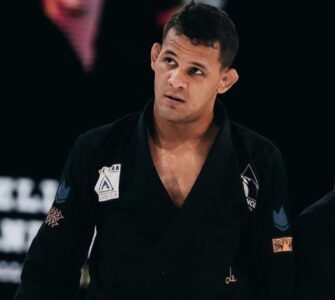The University of Iowa wrestling program is one of the most successful athletic programs in NCAA Division I. The University of Iowa Hawkeyes are a member of the Big Ten Conference. Iowa is second in NCAA history with 23 national championships, all of which have come since 1975. Sports Illustrated recently named the Iowa program one of the top sports dynasties of the 20th century.
Here is Iowa’s sports nutrition program for their Wrestling team.
UNIVERSITY OF IOWA HAWKEYE PERFORMANCE NUTRITION
Maximum Performance, Recovery & Body Compositional Changes Performance Nutrition is not Nutrition for Health/Fitness (Wellness)
Our goal with the performance nutrition program is not to provide you with a strict diet to follow, but rather to educate you and provide you with the resources necessary to make good decisions when it comes to your diet. In this program we will break down the differences between good and bad fats, whole grain and processed carbohydrates, as well as lean and fatty protein sources. We will also discuss how each affects your performance and body composition and hopefully provide you with a base of knowledge that will allow you to change your eating habits. It has been my experience that eating habits, and not calorie counting, are a more effective way to manage body composition and improve performance. This does not mean that calorie intake is not a factor, but rather focusing on nutritious, healthy foods will often help achieve your performance goals along with hard work.
CARBOHYDRATES
1 – – Carbohydrates are your body’s preferred source of energy for most athletic activities and thus should make up the majority of the calories that you consume.
2- Aim for at least half of your grains to be whole grains (non-processed). Excellent sources of carbohydrates are whole grain bread, whole grain pasta, oatmeal, quinoa and brown rice, to name a few.
3- Intake should be consistent with training level.
4- The average athlete on a training day will need approximately 2.7-4.5 grams of carbohydrates/pound of body weight per day.
5 – Choose foods that are nutrient dense. (whole grains, fruits and veggies, NOT chips and candy)
6 – Always eat carbohydrates with a protein source.
7- SHOW A FOOD LABEL
PROTEINS
1 — Proteins are part of every cell, tissue and organ in our body. Protein is used for building and repairing muscles and tissues, red blood cells, hair and finger nails and for synthesizing hormones.
2 – An athlete needs approximately 0.6 and 0.8 gram of protein/pound of body weight per day.
4 – Spread your protein intake throughout the entire day.
5- Include a protein source with most meals and snacks you eat throughout the day.
6- Protein builds muscle and you are either building up or breaking down, if you do not consume enough protein frequently enough your body will break down muscle.
8- It is important to note that protein is the body’s least efficient energy source.
9- A 3oz. piece of chicken (about the size of a closed fist) has 25 g. of protein. Other lean meats have similar protein content.
10- Some of the top protein sources are: Fish, Chicken or Turkey Breast, Eggs and Egg Whites, Other Lean Meats, Low Fat Dairy Products. Other good sources are tofu, seeds, nuts and legumes 9beans and lentils).
FATS
1- Good fats are extremely important in cell repair, vitamin storage and absorption, hormone production, mental functioning, satiety as well as several other vital body functions.
2-The majority of your fat consumption should be derived from good fats (polyunsaturated and monounsaturated).
3- Monounsaturated fats = Olive Oil, canola oil, peanut oil, sunflower oil, sesame oil, avocados, peanut butter and many nuts and seeds.
4-Polyunsaturated fats = soybean oil, corn oil, safflower oil, salmon, mackerel, herring, trout, walnuts and sunflower seeds.
5- Minimize trans fat and saturated fat intake (Bad fats). These include animal fats (fatty meats, whole milk, butter, cream, palm or coconut oil.
6-These fats are all very good for you In Moderation. They are very high in calories so be conscious of this.
DAILY MEAL PLANNING
1 -Try to choose foods that are Nutrient Dense and Low in Fat, especially saturated, but don’t cut fat out of your diet – just eat it in moderation.
2 – On days you are not training, cut back your food intake, especially carbohydrates.
3 – Try not to eat processed carbohydrates ever by themselves, instead eat a Protein source along with them.
4 – Spread your food consumption throughout the day instead of eating huge amounts at one sitting. You should eat 4-6 moderate meals a day.
DEVELOPING PERFORMANCE NUTRITION EATING HABITS
Keep it simple like it’s meant to be, focus on the basics – your Daily Food Intake, not calorie intake and PLAN AHEAD!!:
1. Spread out your food intake throughout the day. Instead of eating 3 huge meals it is best to eat 4-6 smaller meals or at least lessen your food intake during your 3 bigger meals and have a few large snacks in-between them. Try never to go more than about 2-3 hours without a proper snack/food (combo Carbs and Protein) and don’t ever skip a meal, especially breakfast!
i.e. Turkey sandwich, banana, wheat crackers or Piece of fruit and handful of seeds/nuts
2. If you are trying to maintain body composition/weight you should eat only to the point where you are no longer hungry (you are satisfied, not full). If you are trying to gain weight you can eat past being satisfied but not to where you are really full/stuffed. It’s much better to spread the additional food out into your smaller meals/snacks. If you need to lose excess body fat, do it right! Choose lower fat foods, cut back carbs slightly, but high GI carbs significantly. Also cut as much “bad” fat from your diet as possible.
1. Pre-Game meal should be eaten approximately 4 hours prior to competition/training. Eat a normal size meal made up of Low GI foods and Lean protein sources.
i.e. Scrambled eggs, ham, cereal w/milk, and a banana.
2. Prior to competition/training eat a snack (combo Low GI carb and Lean protein source) within 1-1 ½ hours
i.e. Peanut butter sandwich
3. Immediately after competition/training (within 15 minutes) drink a fluid replacement drink past the thirst-quenching point. Then within an hour eat a meal that is made up of High and Low GI foods and protein. Follow this meal with another one like it, with the exception of being larger than the first, within 4 hours post-training/competition.
i.e. Baked Potato, Cooked carrots, Roast beef, Cranberry juice/Pop, and Frozen yogurt
MOST COMMON MISTAKES
1. Don’t drink enough fluids, especially water – Dehydration occurs
*Drink throughout the whole day not just during meals and don’t go by thirst – Carry a water bottle around (in your pack)
2. Dehydration and tiredness leads to a loss of appetite or a craving for “junk food”
*Don’t eat what you feel like, but how much you need – You need to eat more in season than out of season
3. The undisciplined/uncommitted athlete will already be living a lifestyle that is counterproductive to recovery (Lack of sleep, alcohol, junk food “binging”)
*This is probably the area most common, most abused and that has the greatest negative impact on training and performance
4. Combine 2 & 3 with either skipped workouts/not moving the appropriate amount of weight because you don’t “feel” like it – Loss of Lean Muscle Mass
*Don’t skip a workout and don’t lift according to how you feel – Warm-up extra and move as much weight as you can.
5. Nutrient Dense Foods are cut – Especially Proteins, Fruits and Vegetables
*Even though you might not feel like these foods you must eat them to stay healthy and maintain lean muscle mass.
6. Because the appetite is down and because of a busy schedule there are long stretches without eating, so energy levels go up and down like a yo-yo
*Take snacks with you wherever you go – Even a not-so-healthy snack is better than going without eating.
7. A “feeling” of tiredness and depression about your body sets in – The once disciplined athlete will begin to develop really bad eating and lifestyle habits (Lack of sleep, alcohol, junk food “binging”)
*Don’t go on how you feel or look – keep focused on making the best choices you can.
8. Combine 5 – 7 and the body not only stops burning fat, but it begins breaking down lean muscle mass and storing fat
*Your performance will go down as you lose muscle and gain fat.
9. The combination of all these things runs the body down and makes it much more susceptible to sickness and injury
*It is no fun being sick and injured most of a season – take care of yourself and give yourself a chance to perform.
This is viscous cycle that becomes tougher and tougher to stop as the season progresses – Don’t allow it to begin
10. Always remember You CAN’T OUTWORK A BAD DIET!!!!


















